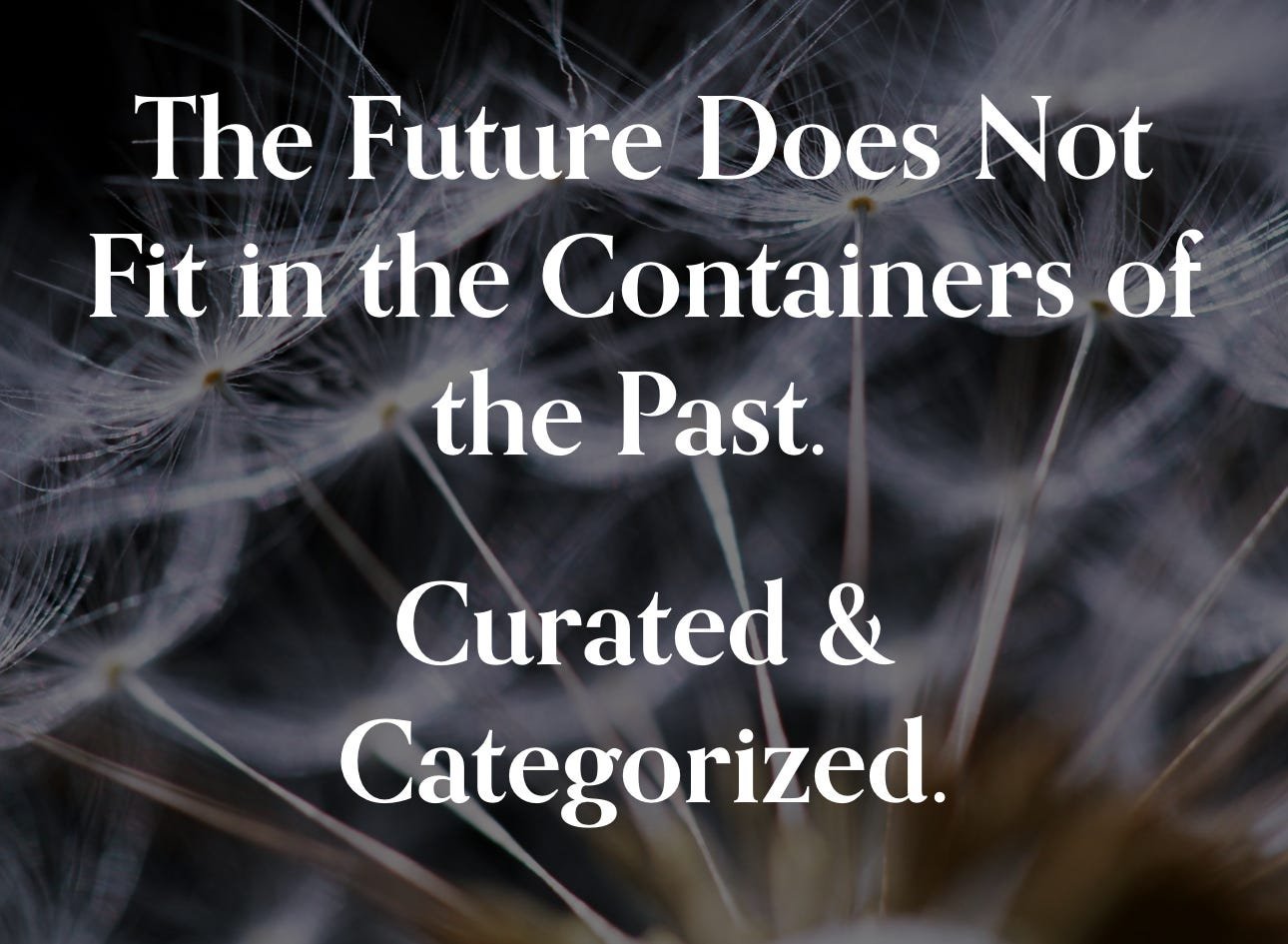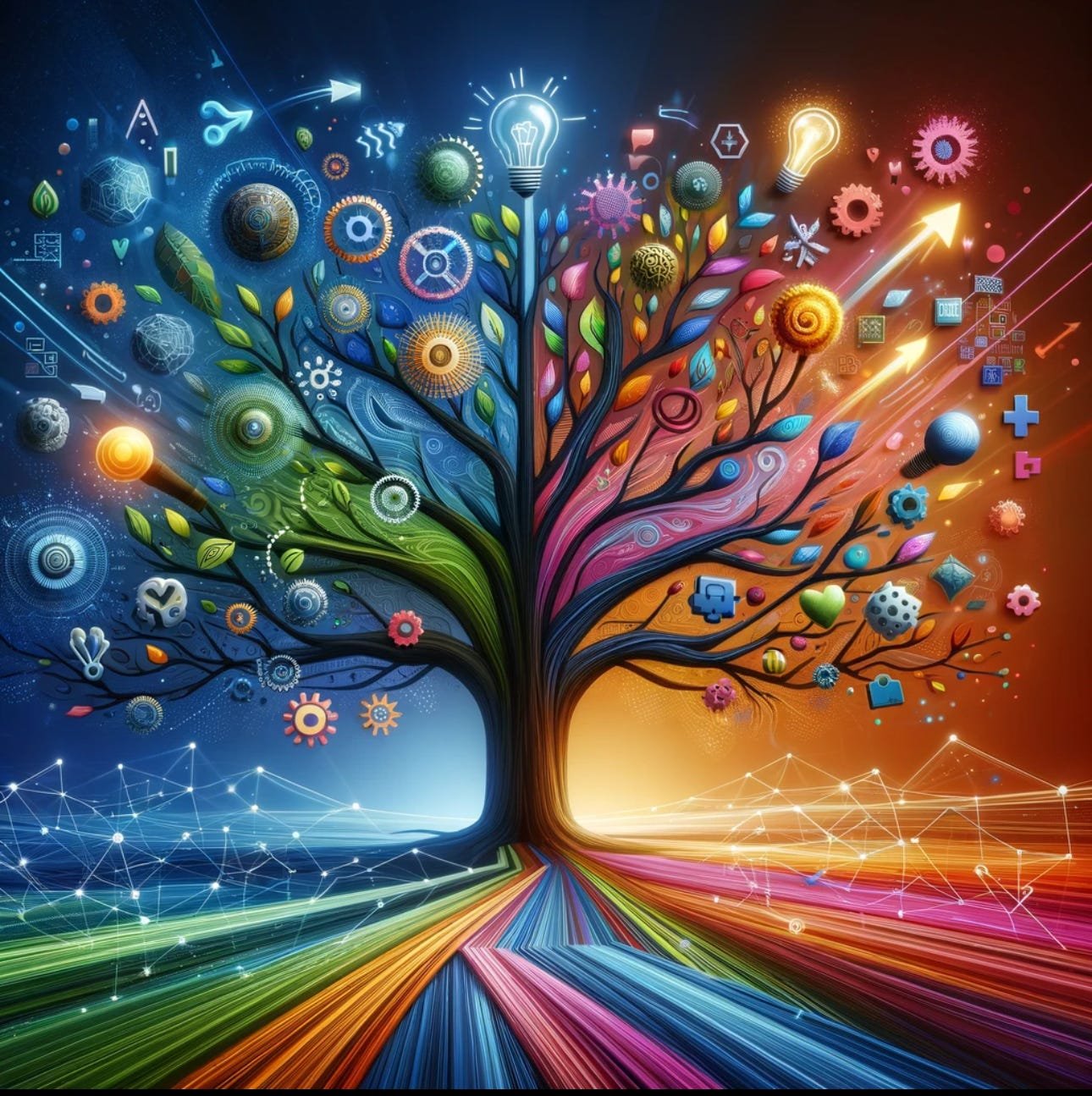Different.
Here are a simple set of three exercises that can be done by anyone, anywhere, and at anytime but will likely leave you seeing, thinking and feeling differently.
1. Making a difference.
At the end of every day we might want to ask ourselves:
How are we different today then yesterday?
Did we make a difference to anybody or anything?
What would we have done differently?
The first question is about our growth.
Did we grow today so we are different than yesterday?
The second question is about our impact.
Did we have an effect on somebody or something today so they came away better or different?
The third is about improvement.
What did we learn that make us better tomorrow?
If we ask these questions to ourselves every day ( or every week or every month) it allows us to re-invigorate ourselves even at the end of tough days and in some cases signal we need to change our jobs, relationships or lives if the answers constantly indicate low growth, or limited impact or little learning.
Try the exercise and you may find it eye-opening.
2. What made a difference.
We are a sum of the decisions we made, the people we met, the things that happened to us and the chances we took.
In most lives just a handful of decisions, people, events and chances have made all the difference.
Understanding these are a key to a life.
Try answering these:
What 3 key decisions in your life have made all the difference? ( eg. a partner, a job, a decision to leave a place or person)
What 3 people have shaped your life and/or career?
What 3 events good or bad have shaped you ?( eg. health issues, financial windfall, accidents)
What are the 3 biggest chances you took that have determined where you are ? ( eg. risks, betting on people, career re-inventions, moving locations)
In life a handful of decision, events and people determine where you end up.
Often though our lives are changed by other peoples decisions to hire us, help us, partner with us and we need to keep in mind that we have less control often then we might think.
In fact the two biggest drivers of a life are two draws of the lottery which we have no control over.
These are a) who we are born to and b) what country we are born in.
Winning the genetic lottery is often greater than any financial lottery.
One of the benefits of the “what made a difference” exercise is that when we ask others for their key 3 decisions, people, events or chances, we tend to form deeper connections and catalyze more meaningful conversations.
3. A different us.
What differentiates us?
One of the most interesting thing is to see people conflate themselves with their trappings.
If you are a senior person in a company is it you or your role, the company reputation or the money you control that people are admiring and genuflecting too?
So many people are shocked that when they leave or lose their position that they are no longer as relevant, sought after, pandered or curtsied to.
There is us the person.
And then there is us the objectified person empowered by another power source ( a company, a budget, a role) that we borrow from.
Important to remember the differences and to realize what will remain that is us after the role or job or position end.
It is a difference that matters a lot.
What makes you different that is uniquely you?
It is usually a combination of a special niche/skill, a voice and true stories that will alway be yours.
To discover yours try this exercise…
Expiration Date.
Image by David Rojkowski using Leica iPhone de Lux.
The most important expiration dates are not those on food, subscriptions, insurance policies or medicine.
These dates are known.
Its the expiration dates that are unknown that matter the most.
Career Expiration.
‘Every career has a midnight hour. The smart people leave at five to twelve.’
This piece of advice by my friend Sanjay Khosla who ran many large companies over his career really resonated.
Regardless of how good we are, how senior a role we inhabit or how irreplaceable one thinks one is, every career comes to an end.
All is well and then suddenly we find ourselves at midnight hour and the carriage of a career turns into a pumpkin.
The key is to leave before the midnight hour.
This ensures that one avoids being shown the door or shuffled into a reduced role .
The difference between early and late is significant because those who over stay often turn bitter or lose the community or connection that come from colleagues because one has left under a cloud.
These midnight hours occur not just at the end of a career but all through a career.
And they can be felt.
Be particularly wary when one or some combination of the following changes happen:
a) a change in management, b) an acquisition or take-over, c) a sudden change in financial results or d) a shift in technology which creates a strategic review.
When one instinctively feels a change in the force one must pay a lot of attention and ask some combination of the following four questions:
a) How to adapt to the new management?
b) How to adjust to the new culture and power shifts of an acquisition or sale?
c) How to re-think ones skills, approaches and role in the shifts that follow a change in financial result?
d) How to reinvent, learn and change to align with new technology?
If one does not adapt or re-invent or one feels that one cannot work under the new changes then be prepared to find one on the wrong side of the midnight hour and it is better to exit with grace.
Companies do not adapt to employees.
Employees have to adapt to the new realities.
If one is not willing to adapt then get ready to walk.
There is one other time when the midnight hour occurs and this is when one stops growing in a job.
The day one stops growing it means one’s career has started dying and the midnight hour has arrived.
Image by Pepitobobito using MidJourney
Financial Expiration.
The underlying basis of much financial planning is based on three unknown expirations:
a) When will you retire?
This number is shifting to much older for most people either because we are living longer, or in some countries pension payments are being pushed out to later years, or because the cost of living has risen forcing one to work longer.
b) When will you stop earning income?
One can continue to make an income after one leaves a full time job though it may be smaller and more variable till one day it stops. Many financial models fail to take this into account.
c) When will you die?
This number is the big unknown but in most countries it is later and later and something that people have not thought about is how a combination of AI and Biotechnology could significantly increase life expectancy due to breakthroughs in medicine.
It is fascinating to understand how many retirement calculations are based on assumptions that may not make sense. For instance the famous 4% rule that one can draw down four percent of ones assets and not run out of money is based on retiring at 65, having no income and living to 95. Even the person who came up with model believes the draw down is too low.
Similarly annuities which pay a fixed sum for the rest of one’s life is a bet by you that you will outlive the calculations of the actuaries at the Insurance companies. And since they have not factored in the impact of AI and Biotech yet it might be a good bet!
Image by Yiplingli42 using Midjourney.
Life Expiration.
“The Meaning of Life is that it Ends”
Franz Kafka’s quote above explains why living forever even it it was possible might make life less special since if there was no loss, no last things, no ticking clock, would any day, anything or any moment be particularly special?
If one knew how many years one had left would we not live very differently than we do today?
Anyone given a bad health diagnosis usually changes the way they live because they become particularly aware of time.
But most of us can determine the time we have left if we want to.
Globally life expectancy is 73 years and in the US it is 78 years.
So assume 75 years of healthy life.
Subtract your age from 75 and multiply it by 365 days and that is what is left.
Most people are surprised how few they are.
Someone at 55 has just over 7000 days left.
At 65 its a little over 3500…
Keep that in mind next time someone does not take your time seriously.
All Free. All on One Page. All Yours.
This is the 200th edition of “The Future Does Not Fit in the Containers of the Past.”
Over the course of 200 Sundays in a row (nearly four years) 250,000 words of writing (the equivalent of five books) accompanied by the work of a talented painter, sculptor, photographer have been published at rishad.substack.com.
The writing has attempted to be bohemian, shifting across a range of subjects in the belief that in an age of “full-stack leaders” and “vertically or horizontally integrated business models” there may be space for some full spectrum thinking and writing that combines strategy and poetry, technology and art, change and what does not change, roots and wings, business goals and personal ambition, and the many other dualities and complexities that cannot be simplified into a tweet or a silver-bullet solution.
The writing has kept away from the news, politics and the memes of the moment and therefore has stayed evergreen. A piece from four years ago is probably as relevant as it is today.
Finally, everything has been written by one human, remained algorithm free and completely non-monetized with no advertising sales, subscription fees, affiliate marketing or data harvesting.
Regardless, every post has been written, edited and honed with great care ( 3 to 4 hours of writing each week distilling half a century of learning for a six minute piece) since it needs to reward you the reader for your most valuable asset.
Time.
Today nearly 30,000 people spend six minutes a week reading this thought-letter.
That is 180,000 minutes or 3000 hours of time every week.
For the ROI hungry…I write 3 hours a week and get 3000 hours of attention a week which is an ROI of 1000…
It is not just the time but the goodwill generated too.
Thank you reader.
And here is another thank you:
A One Page Distillation.
As some of you may be aware at the request of many readers who like to revisit certain pieces to use for their work or forward to others ( bosses, colleagues, children) I have created a single page where the best pieces and have organized them into a dozen areas for easy access and reference ( much faster than any chatbot or search engine which I have tried to program).
Here is where you can find the one page ( please book mark or note the address as it is a hidden page on my website):
https://rishadtobaccowala.com/100
These 12 different subject areas include those helpful for work such as:
a) Future Thinking and Strategy
b) Managing Change so it Sucks Less
c) Upgrading our Mental Operating System
d) Building Great Cultures
But also sections helpful for the individual such as:
a) Enhancing Effectiveness
b) Selling Better
c) Managing Careers
Or pieces about life, living, losing, love, literary pursuits, philosophy, poetry and joy and can be found in the following sections:
a) Personal Growth
b) Wisdom
All the writing is not only free but it can be sampled, copied, used, fed into transformers or leveraged in anyway the reader wants without any royalty or fee or even attribution.
Because the joy I get from writing and giving is all the getting that is needed.
Thank you again for supporting 200 weeks of writing with your time.
My Incredible Film Career: Learnings.
There are some who believe I am a writer, a speaker, a podcast host, a teacher or an advisor.
There are others who may recall some expertise in strategy, media, advertising, communication or transformation.
But all that is a sideshow to my incredible film career.
Now the truth can be revealed about my acting, my producing, my “best-boying” and my “key-gripping”.
All three of my films were bought by and began streaming on HBO June 1 and here are the trailers for your viewing pleasure (for some strange reason I am not mentioned or spotlighted in these trailers…maybe they want to save the best for the subscribers!)
Life After:
Shadows:
User Zero:
Not a Nepo-Daddy!
There is a rumor drifting around that this amazing career of mine was made possible because I am a Nepo-Daddy who was given his break because the writer, director and editor of these three films is our elder daughter.
Rubbish!
If that was true, would I have been promoted from best-boy to key grip? Did it not require fortitude and talent to balance heavy equipment between two seats in the front of a U-Haul careening at 3 am through the streets of Brooklyn? Who could in rapid order deploy Uber to feed a cast of many at strange times? And my scene scooping some rice into a plate may have lasted only two seconds but they are the ones that Robert De Niro and others watch again and again for the deep subtlety and nuance of acting that transformed this movie.
Yes it is true that Ria always loved cameras as the photo above indicates.
And okay she may have some talent but it takes a special talent to see the Bollywood and Hollywood potential of a relative!
In order not to hog all the glory and to prove that I am okay with sharing the spotlight, here is a little bit about Ria from her website: https://www.riatobaccowala.com/bio
Now let me share some learnings that might be useful regardless of what industry one may wish to be a star in.
But first proof (not AI generated) of me being in the middle seat with the heavy equipment between the director and her other producer.
Learnings from my film career (and observing those of other talented folks like our daughter)
The creative arts including film in many ways is where transformation brought about by the shifts of multi-polar globalization, demographic shifts and technology are being played out in real time.
It is where the future of work is being defined.
It is the landscape where the upsides and downsides of technology from streaming to AI to mobility are being played out in real time.
Here are a few take-aways
A new ecosystem is enabling talent and are changing the rules of the game: The three movies our daughter made all cost less than $25,000 each and were enabled by the technology changes of the last ten years including: a) peer-to-peer marketplaces which enabled her to rent expensive equipment by the day, b) Airbnb that allowed for low cost location scouting and renting, c) low cost transport via Uber, d) fundraising through crowdfunding platforms, e) mobile video audition platforms to help cast key roles, and f) social media to support promotion. These are just a few of the factors among many more.
A plethora of new ways to create, imagine and monetize are being turbocharged: Now even though it is a dual edged sword AI is providing amazing tools at low cost to millions of creators who did not have access to such tools. Simultaneously, Blockchain is empowering monetization in new ways and AR/VR as well as Epic’s Unreal Engine are enabling completely new forms of storytelling.
A big benefit of streaming is globalization and the launch of new voices: Every week many of the top shows in the US on Netflix are not made in the US but in Korea (Squid Games), France (Lupin) and many other places. If there was no streaming, our daughter's films would not be on HBO, which is no longer limited to a 24-hour linear calendar. YouTube is a global phenomenon and if you want to see amazing Noir programming try MHZ. The gatekeeper and the tastemakers are less and less important.
The media industry is in deep turmoil and maybe where the future of work and intensity of technological change is being most illuminated: The Writers Guild fought hard to ensure that AI did not replace them. As we have seen with the Scarlett Johansson and the Open AI brouhaha or the thousands of fake AI generated books on Amazon this is a very challenging time for anyone in the creative arts. As AI and other technologies advance, some of the ways the entertainment industry has worked for years may change the future for all of us. Specifically every talent is a company of one moving from gig to gig some of which last for hours and others for months (movies) or years (successful tv shows or broadway plays) combining different assignments to create a living. While there are many more ways for talent to be found and to promote themselves, it is also true that there is much more competition and building a brand, a network of relationships, a body of work, and a reputation for being easy to work with becomes important.
Persistence, Community, Luck and a Thick Skin are key: Our daughter has been on a 8 year journey which included being an assistant bringing in coffee and setting up calls (despite 3 education degrees and years of accomplishment at a well known tech firm), unemployment (writers' strike and in-between gigs), being lifted by community (other creatives, the unions, former bosses, and people pitching in for each other), luck (it matters in every career and so much of all of our careers are the chances we get), and a thick skin (rejection is central to the creative process).
Lots more learning but those are the keys.
One more thing I will no longer be at Cannes for Advertising since I now expect to be on the red carpet at the real Cannes…
When not being a major movie magnate Rishad does a few side gigs and hustles noted here: https://rishadtobaccowala.com/bio
Maximizing Optionality.
In career and in life, a key is to maximize optionality.
It is important to ensure that except for a life partner, one is not so dependent on a single platform, company, supplier or approach that we loses agency over our future choices.
Optionality also matters across a range of areas in order to remain competitive.
Strategy and Optionality
If strategy is “future competitive advantage” and the future is hard to see, we need to ensure we have the flexibility to adapt to circumstances and new data.
A case can be made that many leaders and firms including many in the “legacy” media business found themselves either too reliant on a single platform (e.g. Google or Meta or Apple) or too addicted to the margins from the existing business model they did not invest in a plan B to re-think their business model until it was too late.
Very often they limited their competitive set to their existing category and thus limited their options in seeing future threats or future opportunities.
If one does not have choice one cannot make strategic moves.
Timing and Optionality.
While being too early in implementing a strategy is sometimes the same as being wrong, being late is almost always wrong because business models first erode slowly but then suddenly and within months an existing model is no longer profitable or new competition has been allowed to establish strong footholds.
Minimize time on task forces.
Maximize time on tasks.
Tasks that allow for development of minimum viable products, proof of concepts and ways to get teams and organizations moving in the direction of tomorrow. Ways to stress and test the system and allow time for the analog reality of culture and slowness of people to adapt.
Err in the direction of speed to maximize options.
These days it is not speed that kills but the lack of speed that kills.
Career and Optionality.
A case can be made that talent who have options are more likely to be loyal.
While this sounds counter intuitive it is not.
The best leaders and best companies build and grow talent so that a) they are constantly becoming more valuable in the marketplace, b) better known in the marketplace and c) have many firms trying to recruit them.
This increases both the success of the firm and the loyalty of the employee for three reasons
a) If one is not growing one’s talent to be the best in the industry how will a company be best in the industry? And if talent is growing to be at the top of their game they are less likely to leave.
b) If one’s talent is well known in the marketplace, they attract both Clients and the next generation of talent who realize that the firm is allowing them to grow their brand and their worth as they grow the firm’s reputation and growth.
c) Being well regarded and constantly building skills allows talent to handle the setbacks that come with one’s career without having to quit since they know they are held in esteem and therefore have options. If one’s market value continues to increase in the firm, one is working at why go anywhere else?
Companies do not transform and grow. People do.
Thus, firms that help people grow and transform themselves and let them celebrate and promote these achievements end up with the greatest optionality in recruiting and retaining people to adapt to transformative times.
The best wants to work with best. Winners with winners. Company growth and personal career and brand growth are intertwined.
Modern Talent Mindset and Optionality.
In the US, 66 percent of Gen-Z who have a full-time job have a side gig or side hustle with which they make money. This is due to some combination of needing extra income to make ends meet and building expertise to ensure they have future options and to ensure optionality of income and therefore choice.
76 percent want to work for themselves if they can because after the shocks of the Great Recession, Covid, Tech job meltdown, threat of AI they no longer want to outsource their future to a firm.
So as companies try to figure out how to leverage AI to become more productive either through cost cutting or enhanced products and services, leadership and Boardrooms need to remember that talent is simultaneously thinking about how AI increases their options!
Here are some questions that Management and Talent need to consider regarding their future options in an AI world
a) Who captures the productivity gains? If AI creates productivity gains why will talent not decide to use the AI tools (they are very inexpensive and today more used by talent than companies) so that it benefits them in either working less or asking for more compensation for their increased productivity? What makes companies believe that AI productivity will go to shareholders and the bottom line and not to the talent that uses these tools to become more productive? ( Threatening people with job loss turbo-charges their plotting on optionality! )
b) What is the benefit of seniority? Since AI makes knowledge free (and some folks at Google believes it will make intelligence free) it lessens the advantage of many types of seniority for a couple of reasons. First the rules of the game change and so knowing the old rules are no longer an advantage. Second legacy knowledge is now easily available, and it will not take lawyers or consultants as long to make partner.
c) What is the benefit of scale? Scale matters and has always mattered but increasingly modern tech and AI is providing many benefits of scale to small companies and the individual. We are likely to see many billion-dollar companies with a total of less than a hundred employees
The modern mindset is to re-consider all options including what are the new options to eliminate scale advantages or create new scale advantages.
How best to train and deal with tenure when companies are likely to pay less for knowledge but more for intuition, insight, imagination and ideas.
How to re-think employment and benefits in a modern AI workplace.
Adaptation will be critical and maximizing optionality will be the key to adaptation.















